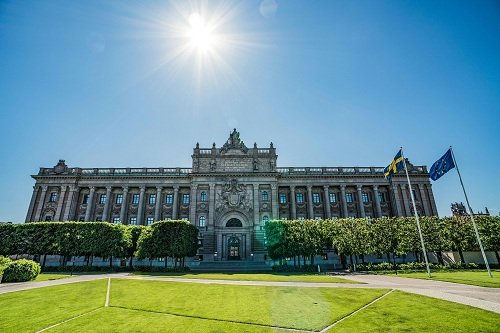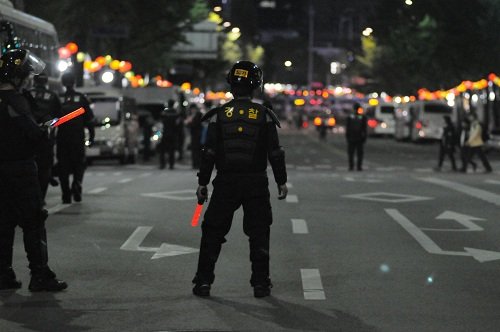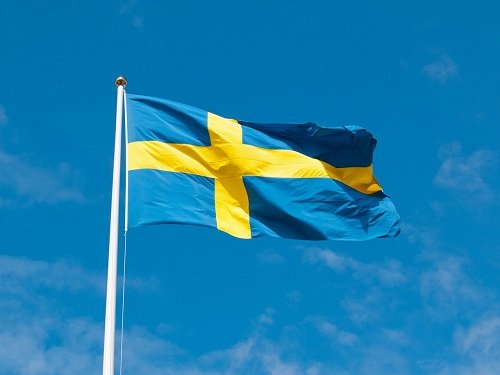In recent times, many Pakistanis have considered Sweden as a destination for education, work, or immigration. While Sweden has a reputation for being a peaceful and well-developed country, there are growing concerns that it may not be as safe or welcoming as it appears. If you’re thinking about moving to Sweden, it’s important to be aware of the challenges you may face.

Here, we highlight 10 key reasons why Pakistanis should reconsider their plans to move to Sweden. This blog aims to provide a clear and simple understanding of the current situation.
1. Increasing Crime Rates

Sweden is no longer as safe as it used to be. Reports of gang violence, shootings, and bomb attacks have been rising. Immigrant communities, including Pakistanis, are sometimes caught in the middle of these conflicts. The Swedish police have admitted that they are struggling to control organized crime in certain areas.
Read more about Sweden’s crime statistics here.
2. Rising Racism and Discrimination
Many Pakistanis living in Sweden have reported experiencing racism and discrimination. Immigrants from South Asia, the Middle East, and Africa often face difficulties in finding jobs, renting homes, and accessing public services. Discrimination is also visible in schools, where Pakistani children may face bullying due to their background.
Learn how racism affects immigrants in Sweden here.
3. Strict Immigration Policies

Sweden has tightened its immigration policies in recent years. It has become harder to get visas, work permits, and permanent residency. New rules are making it difficult for families to reunite, which can leave Pakistani families separated for long periods. These restrictions have made life more stressful for those trying to settle in Sweden.
Check Sweden’s latest immigration policies here.
4. High Cost of Living
Living in Sweden is extremely expensive. Housing, food, transport, and healthcare costs are significantly higher than in Pakistan. Renting an apartment in major cities like Stockholm or Gothenburg can consume a large portion of your income. If you’re moving for work, be prepared for high taxes, which can reduce your take-home salary.
Discover the cost of living in Sweden here.
5. Language Barrier
Most Swedes speak English, but the official language of Sweden is Swedish. If you don’t learn Swedish, you may face challenges in finding jobs or communicating with local authorities. Many workplaces require fluency in Swedish, and government paperwork is mostly done in Swedish as well. Learning a new language takes time, effort, and sometimes money.
Learn how to study Swedish for free here.
6. Limited Job Opportunities for Pakistanis

Many Pakistanis move to Sweden with the hope of finding better jobs. However, the reality is different. The Swedish job market prefers locals and European Union (EU) citizens over immigrants from outside the EU. Without Swedish language skills and local experience, it’s extremely hard to get a good-paying job. Pakistanis often end up doing low-paying, labor-intensive jobs like cleaning, construction, or food delivery.
Read more about job opportunities in Sweden here.
7. Mental Health Issues Due to Isolation

Living away from family and loved ones can have a major impact on mental health. Many Pakistanis in Sweden report feelings of loneliness and isolation. The cold weather, long nights during winter, and cultural differences can make it difficult to adjust. Mental health services are available, but accessing them may require knowledge of Swedish or help from someone local.
Learn about mental health support in Sweden here.
8. Social Exclusion of Immigrants
Sweden promotes inclusivity, but in reality, many immigrants, including Pakistanis, feel excluded. They are often seen as “outsiders” and may live in neighborhoods with other immigrants rather than in the mainstream Swedish community. This exclusion affects access to education, jobs, and public services.
Read about social integration challenges in Sweden here.
9. Weather Extremes and Harsh Winters
If you are used to Pakistan’s warm climate, Sweden’s freezing winters can be a shock. During winter, temperatures can drop to -20 °C, with very little sunlight for months. This lack of sunlight can cause “seasonal affective disorder” (SAD), a type of depression that affects people living in cold, dark regions. Adapting to the cold and darkness can be difficult for Pakistanis who are not used to such extreme weather.
Learn more about Sweden’s climate here.
10. Lack of Halal Food Options
Finding halal food in Sweden can be challenging, especially in smaller towns and rural areas. While larger cities like Stockholm have some halal stores and restaurants, the options are still limited. If you rely on halal food for religious reasons, you may struggle to find suitable products or pay a higher price for imported items.
Find halal restaurants in Sweden here.
Should You Still Move to Sweden?
Before making a big decision like moving to Sweden, it’s essential to understand the risks and challenges. While Sweden offers a high standard of living, it also comes with its own set of difficulties for Pakistanis. From rising crime rates and racism to job market struggles and isolation, life in Sweden may not be as easy as it seems.
If you are still considering Sweden, make sure to research thoroughly, connect with Pakistanis already living there, and plan for the unexpected. It may be wise to explore other immigration-friendly countries like Canada, Australia, or Germany, which may have better opportunities and support for Pakistani immigrants.
Explore other immigration-friendly countries here.
If you found this blog helpful, feel free to share it with your friends and family who are thinking about moving to Sweden. If you have any personal experiences or questions, leave a comment below. We’d love to hear from you!




